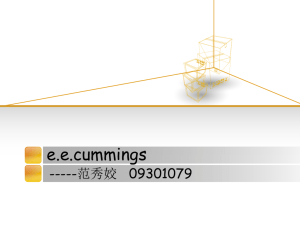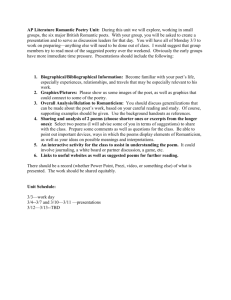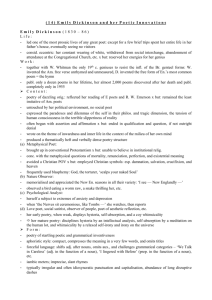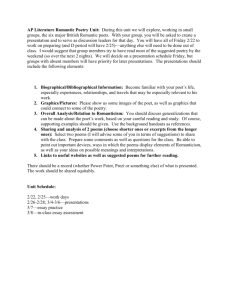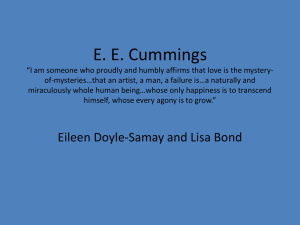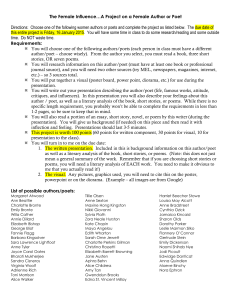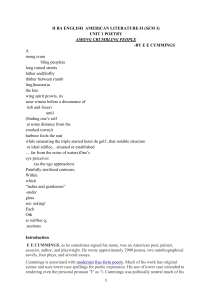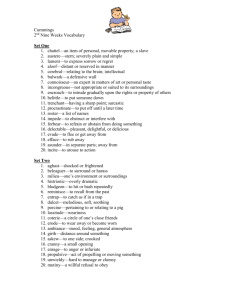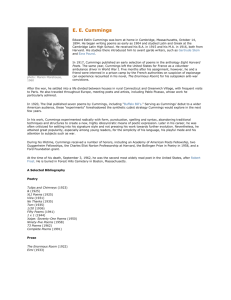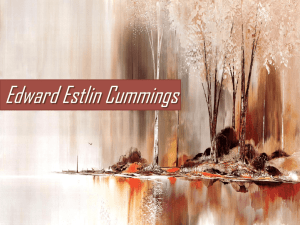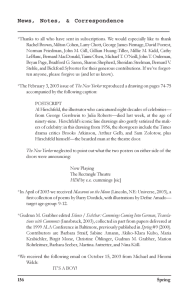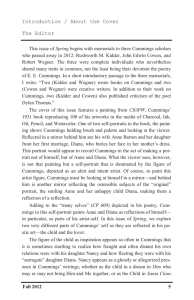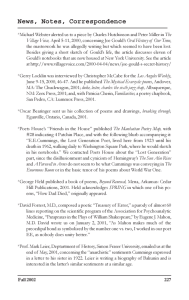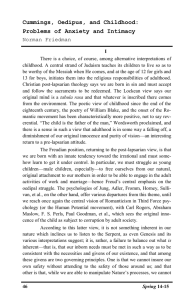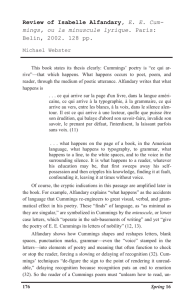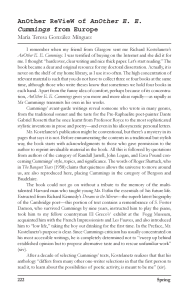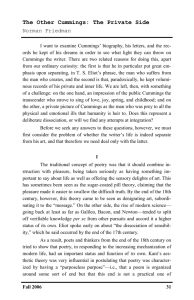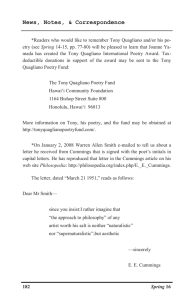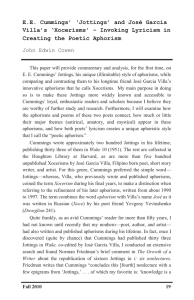MLA Poetry Research Paper Tips
advertisement
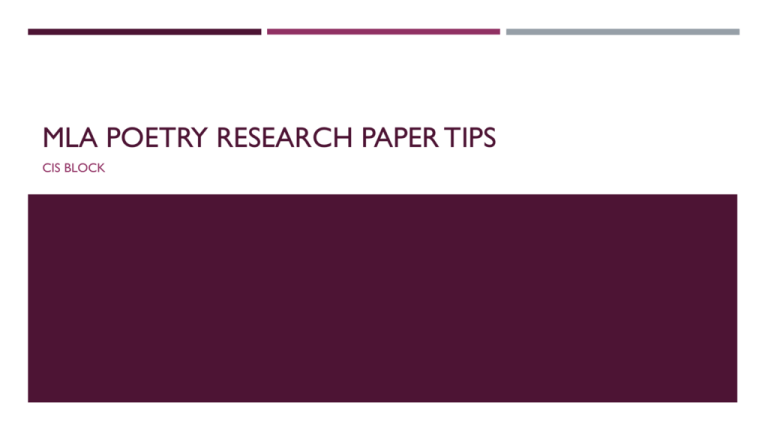
MLA POETRY RESEARCH PAPER TIPS CIS BLOCK GENERAL INFORMATION Pronouns Numbers Spelled in one or two words– spell out Seventy-six, five, sixteen More than one or two words– write numeral 1,309, 273, Referring to poets by name The first time, use whole name Every other time, use last name If you are referring to multiple people with the same last name, make sure readers can follow! “Their” indicates more than one A poet is influenced by their culture– incorrect sentence A poet is influenced by his or her culture– correct sentence Punctuating quotes from poetry If you are quoting multiple lines, use slash marks between lines. In his poem, "Mending Wall," Robert Frost writes: "Something there is that doesn't love a wall,/ that send the frozen-ground-swell under it" (42-44). MLA INFORMATION Nice use of parenthetical citations! Good job including a Works Cited page! Make sure you have a header! Right aligned,Your last name and page number RESEARCH IN GENERAL Avoid life story– focus should be CULTURE How did your poet think, live, believe, behave, etc.? Research information outside the poet’s life. i.e. If the poet grew up in the Victorian Age, research that period and explain what life was like for the poet. Include a clear THESIS STATEMENT in your introduction Example: The culture that Thomas Hardy grew up in and experienced throughout his life shaped his literary works. Example: It is clear that the culture of the mid-1900’s impacted Sylvia Plath’s poetry in a dramatic way Overall, a LOT of good research and information was shared Make sure to process the information– should not read like a Wikipedia page INTRODUCTIONS Introduction– WRONG Edward Estlin Cummings, known as E. E. Cummings, Introductions have three parts Hook Thesis Three or more topics covered in the paper with the abbreviated form of his name often written by others in lowercase letters as e e cummings, was an American poet, painter, essayist, author, and playwright. His body of work encompasses approximately 2,900 poems, two autobiographical novels, four plays and several essays, as well as numerous drawings and paintings. He is remembered as an eminent voice of 20th century English literature. INTRODUCTIONS Introduction– WRONG Edward Estlin Cummings was born on October 14, 1894, to Introductions have three parts Hook Thesis Three or more topics covered in the paper Edward Cummings and Rebecca Haswell Clarke who were Unitarian. They were a well-known family in Cambridge, Massachusetts. His father was a professor at Harvard University and later the nationally known minister of Old South Church in Boston, Massachusetts. His mother who loved to spend time with her children, played games with Cummings and his sister, Elizabeth. Cummings wrote poems and also drew as a child, and he often played outdoors with the many other children who lived in his neighborhood. He also grew up in the company of such family friends as the philosophers William James and Josiah Royce. He graduated from Harvard University in 1915 and then received an advanced degree from Harvard in 1916. INTRODUCTIONS Introduction– RIGHT The turn of the century.The coming of the modern age. The end Introductions have three parts Hook Thesis Three or more topics covered in the paper of Victorian customs. These events were all experienced by Edward Estlin Cummings, better known by his pen name, e e cummings. This famous poet challenged the rules of literature and will always be remembered for the thought-provoking words and ideas he put on paper. The culture that surrounded him as he wrote greatly influenced his work. He lived through the end of the 1800’s, seeing changes in behaviors and morals. He survived the roaring 20’s and the depths of the Depression. He continued on through the American Dream of the 1950’s. All of these cultural eras had a heavy impact on his writing. GENERAL EDITING Avoid use of “had” Impressive use of checklist and helping each other improve! Example: Wrong-- He had written twenty poems by the time of his death. Improvement– He wrote twenty poems by the time of his death.
